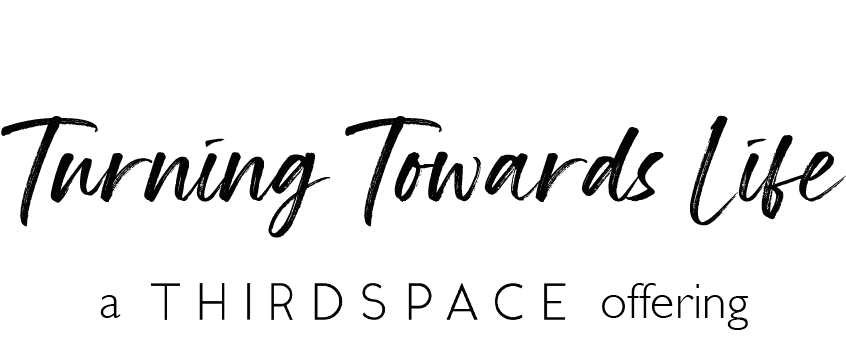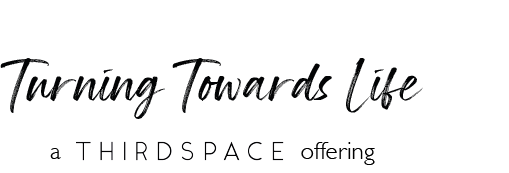Returning To The Path, Episode 50
Here's Episode 50 of Turning Towards Life, a weekly live 30 minute conversation hosted by thirdspace coaching in which Justin Wise and Lizzie Winn dive deep into big questions of human living.
You can join our members-only facebook group here to watch future episodes live and join in the lively comment conversation on this episode. You can also watch previous episodes there, and on our YouTube channel.
Here's our source for this week, from Alan Lew's 'This is Real and You Are Completely Unprepared'. In our conversation we talk about tantrums, what we do when life falls short of our expectations, the simplicity and difficulty of returning to intimacy with the truth of our lives, and how we can only really do this in the company of others.
Returning to the Path We've Abandoned
Spiritualdeadness is a habit. Something in us wants to be dead - wants to escape our reality - and we’ve expressed this desire in a hundred little patterns and habits. So a physical shaking up of our stale routines might actually serve to loosen us up inside and lead the way to inner change... But... eventually [this] stops working too, and sooner or later we have to address the inner roots of the problem of burnout and routinisation directly...
The first thing we should do when we feel we have lost all our passion is to try to find it. This involves a kind of inner turning, an expression of will, an expression of faith, the belief that this passion exists even though we neither feel it nor see it at the moment.
There is a paradigm well mapped out in the novels of Hermann Hesse, especially Siddartha. Siddartha is the story of a young monk who is lured away from a long and extremely devoted spiritual path by his lust for a beautiful woman, a lust that alters the course of his life. He becomes a businessman, totally involved in the corruption and the pleasures of ordinary life. He marries, becomes dissolute, takes up gambling and adultery, and loses his wife. His son rebels against him and finally rejects him altogether, causing him unbearable pain. Finally, broken and despairing, he becomes a recluse, a ferryman, carrying people back and forth across the river. And there on the river, the deep and abiding wisdom he sought in his youth begins to ripen in his soul, until he finally comes to the following understanding:
The world. . . is not imperfect or slowly evolving along a path to perfection. No, it is perfect at every moment. Every sin already carries grace within it, all small children are potential old men. All sucklings have death within them, all dying people - eternal life. . . . Everything is good. Everything is perfect, . . . death as well as life, sin as well as holiness, wisdom as well as folly. Everything is necessary. Everything needs only my agreement, my assent, my loving understanding, my turning toward.
The critical moment in this story is a subtle turn of mind — a moment when the hero must bring his consciousness back to the path he abandoned, back to the path he has imagined doesn’t even exist anymore.
– Alan Lew
Photo by Erik Kossakowski on Unsplash

